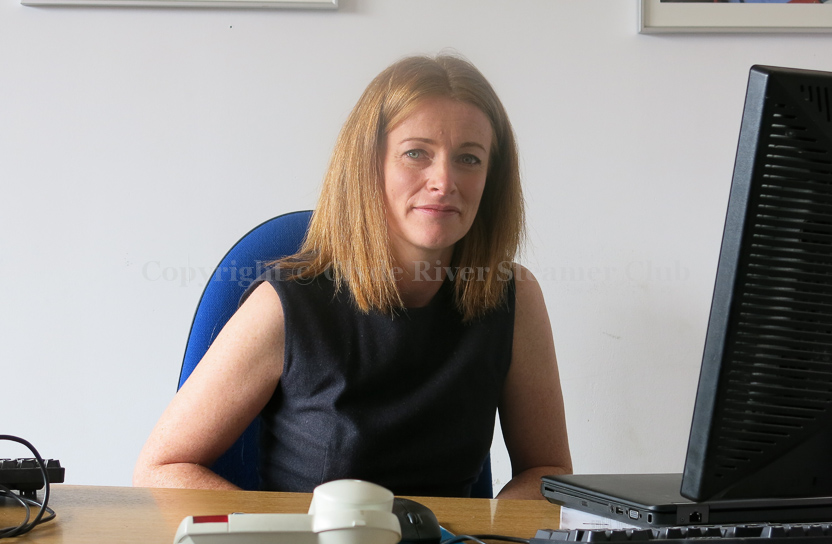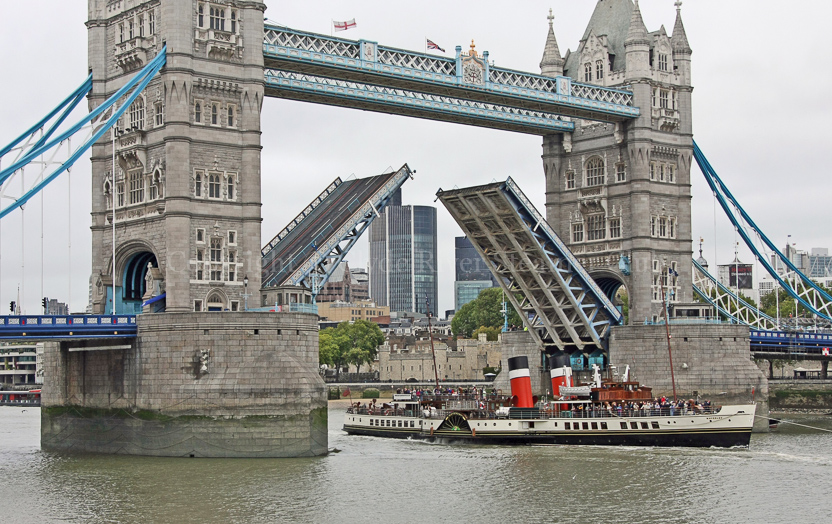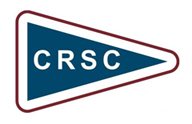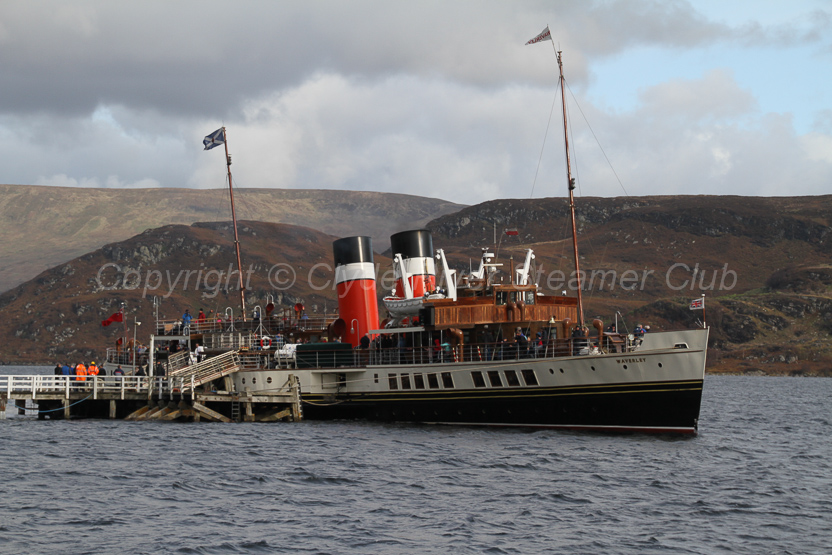Kathleen O’Neill is chief executive of Waverley Excursions Ltd

It is one of those mornings when the phone never stops ringing. Kathleen O’Neill fixes her gaze on a stack of booking forms — all relating to recent North Wales and Bristol Channel sailings that were cancelled because of bad weather, each one needing a refund. But the phone keeps interrupting, and her three colleagues at Waverley’s Clydeside headquarters are fully occupied fielding calls — from people asking for information, or wanting to make a booking, or simply expressing thanks for a great day’s sail.
So when the phone rings again and there is no one free to answer it, the chief executive has to muck in and multi-task: another potential Waverley passenger may be on the end of the line. “Hello, Waverley Excursions”. It so happens that this is one of the simpler calls to handle — the caller wants to know if her child can travel free on a sailing for which an adult ticket has already been purchased. Kathleen provides reassurance, her voice betraying none of the pressures of running a business that, even at the best of times, depends on a fragile mix of variables.
And yes, the buck stops right here on Kathleen’s desk at Lancefield Quay, Glasgow. Gales may blow, fuel prices may rise, regulations may change, critics may carp, but somehow she has to ensure that a 67-year old sea-going paddle steamer, the last working remnant of a bygone era, continues to make enough money to cover running costs, with some to spare for winter overhaul.
An employee of Waverley Excursions Ltd (WEL) since 1999, Kathleen O’Neill has been chief executive since 2011 — a job requiring the patience of a saint and the tenacity of a rock-climber. Like Hamlet, its holder must learn to ‘suffer the slings and arrows of outrageous fortune or take arms against a sea of troubles’. Miraculously, Kathleen has emerged with sanity intact. A 44-year old Glaswegian with a training in accountancy, she volunteers that she loves her job. “I’ve invested so much of my life in it. I’m not ‘an enthusiast’, but I have a great affection for the ship,” she says. “For some people it’s all about the ship. For me, it’s about what the ship does. When Waverley has passengers, she has a soul. When she brings enjoyment to people, that’s what makes her special. We’re always on a knife-edge [financially], but I love the variety of tasks involved in running the business, and I do like a challenge.”
There is no shortage of those at Waverley HQ. The main challenge is to find ways of generating a minimum £12,000 ever day Waverley is scheduled to sail. Simple? Not when you lose 2,500 bookings because of three cancelled sailings on recent visits to Liverpool, Llandudno and South Wales, all weather-related. Not when you face a series of major surveys as part of the upcoming winter overhaul. Not when you know that a handful of so-called ‘enthusiasts’ have been using social media to criticise the Waverley organisation, make personal attacks on its staff and undermine its management. That Kathleen O’Neil meets these challenges head-on says much for her dedication and determination.
So how has the 2014 season gone so far? Loadings to the end of July were down on 2013, a bumper year, but considerably up on 2012. West Highland week, which began on a Tuesday rather than the traditional Friday, “did reasonably well — it always does,” she says. “We were pretty pleased overall.” The Saturday sailing to Armadale and Inverie attracted 516 passengers, fewer than usual, but it was not a bank holiday weekend and the weather was not the best. The midweek sailings were “fairly good”, with a total of 686 travelling on the Gairloch day (263 from Kyle, 180 from Portree, 243 on the cruise from Gairloch). Calls at Tobermory were again limited by high berthing charges at the CMAL-owned pier — an expense that probably rules out a return to spectacular Loch Sunart.
A final verdict on the Clyde season has yet to be made, but it seems to have been a solid year rather than an outstanding one. The Saturday sailing ‘doon the watter’ to Tighnabruaich is consistently the biggest money-spinner. The Wednesday sailing to Tarbert and Loch Fyne remains a puller: 439 was one of the better July figures. Loadings on the Monday cruise round Ailsa Craig generally reflect the weather: 343 were carried on July 21, 292 on July 28, 392 on August 4, but numbers drop when children go back to school — much earlier in Scotland than in England and Wales.
On other days passenger figures are not always an accurate guide to income. On a Tuesday in July, for example, the cruise to Loch Long and Loch Goil attracted 573 passengers, but 228 of these were a reduced-rate group boarding at Dunoon. “There’s a school of thought that people want to go on shorter cruises,” says Kathleen, “but Loch Long is not the one people seem to choose, despite the beautiful scenery.” As for Sundays, this was never the easiest day of the week to sell, so WEL has experimented with internet offers, which reduce fare-revenue per head but help to fill the ship and introduce a new audience to Waverley.
The Clyde season was skewed by the Commonwealth Games, which forced changes to Waverley’s schedule from July 19 to August 3. Passenger access at Glasgow was diverted through a secure route round the back of the Science Centre. Deliveries to the ship could only be made between midnight and 6am. On some days Waverley was obliged to avoid the river and begin sailings from Greenock. WEL wanted to be part of the August 1 yacht flotilla, but restrictions imposed by its organisers and Clydeport Authority meant Waverley could not earn enough money to cover her costs. “We were in a lose-lose situation,” says Kathleen. “We had to find an alternative.”
This turned out to be a charter by Arnold Clark, the car dealership, involving a short downriver cruise for charity organisations. “A lot of people were disappointed not to join the flotilla,” admits Kathleen, “but the only people who would have seen anything of it would have been those sitting at the stern of the ship armed with binoculars. The best view was from the riverside. We made the best of it.”
 |
 |
 |
 |
| Early days at Ilfracombe | At Weymouth with Caledonian Princess | The Pool of London | Heading under Tower Bridge |
Turning to the Bristol Channel, Kathleen argues that the only viable way of preserving Waverley’s annual visit there is to make a single trip south in the autumn —”otherwise you’re loaded with a fuel bill of £25,000 [for a return trip in June]. Because of its geographical spread, the Bristol Channel season is hugely expensive to market. Ports and piers are expensive. You have long days, and the tides impose all sorts of restrictions. It’s difficult to take on stores at Clevedon and Penarth. You can only take on water at one pier, Penarth, unless you ‘lock in’ at Swansea and Avonmouth, and that has to be done at the right tide. Managing all this and getting revenue is a big piece of work.”
Some influential members of the Paddle Steamer Preservation Society (PSPS) maintain that Waverley should always undertake a Bristol Channel season, whether it makes money or not. Kathleen begs to differ: each area visited by the steamer has to contribute. Pointing out that Waverley now receives grants ranging from £15,000 to £30,000 from five councils in the west of Scotland, she says WEL is under closer public scrutiny than ever. “We have to be seen to be taking responsible decisions. If the Bristol Channel is timetabled in the right way, it can cover the running costs and make a contribution to the winter refit.”
So what about those empty two weeks in June that used to be filled with a Bristol Channel visit? “Levels of business in June are low and always have been. We’d lose money. In 2007 WEL offered 100 free tickets at 1947 prices in an attempt to get people on board, and we couldn’t give them away.” Which presumably means ‘no’ to Easter sailings? “I’d never say never,” says Kathleen, “but you’re talking about eight days of costs [including two for commissioning, two for decommissioning] against four of revenue, so you’ve got to square that. David Kells [WEL chairman] is always asking our critics to give us costed proposals [for their various ideas], but they never appear. If a proposal is costed and viable, we will look at it.”
The Thames season operates on a more secure footing: tour operators boost loadings, and at least two sailings from Tower Pier are sold out in advance. The ship is certificated to take 860 as far as Gravesend, and 800 beyond. On the Clyde, the limits are 860 to Dunoon and Rothesay, 800 to Tighnabruaich and 740 beyond the Cumbraes.
And what of Waverley’s revamped catering operation? You can now sip your malt whisky out of a glass, not a plastic cup. The new soup menu has been a hit. Chilled desserts have replaced frozen. The sale of crisps — now supplied by Kettle Chips — has multiplied, and there has been a 12 per cent increase in meal sales. The most controversial innovation has been table service in the dining saloon, designed to reduce queues and address the problem of customers having to wander round looking for a seat after purchasing a meal. It has not met with universal approval.
While Kathleen acknowledges teething problems, she also admits to being “disappointed” with the reaction of some enthusiasts who apparently encouraged people to write letters of complaint. “I’ve eaten on board. The only time the dining saloon would be closed to self-service is if there are more than 60 table-service bookings, usually for tea on a Wednesday or Thursday, when the catering manager knows he’s at capacity. We do monitor what happens. Some people don’t like the fact that they can’t go in and nurse a cup of coffee for two hours like they used to. The new operation has already seen a big reduction in wastage and an increase in profitability.”
 |
 |
 |
|
Relations with the PSPS
have improved over the past year
|
Enthusiasts: the CRSC/PSPS charter
at Ardrossan on August 8
|
A lighter moment at
WEL’s Lancefield Quay headquarters
|
Waverley’s loudest critics tend to be from the very community you would expect to be her biggest supporters — steamer dreamers, some of whom harbour such a deep-seated sense of Waverley ownership that they second-guess every management decision. Social media have generated a lot more criticism than Waverley’s managers faced in the first 30 years of preservation. Rumours can spread like wildfire, some of them malignant. At one point the tempo of criticism started to poison relations between the PSPS and WEL — a situation now being reversed by Iain Dewar, the highly regarded new PSPS chairman. Kathleen’s take on all this? “Most enthusiasts are extremely nice, and we have some great supporters. Those who denigrate the operation are not many — they’re just loud, and yes, in some cases damage has been done. It’s always easier to have a moan than ask those responsible why a decision has been made.”
With ‘friends’ like these, and given the backbreaking hours of work Kathleen puts in throughout the summer, it’s hardly surprising she considered leaving WEL earlier this year. She informed the board and her post was duly advertised: the job spec brought home to everyone how huge — and imposingly bespoke — Kathleen’s role had become. In the end, to the relief of many Waverley supporters, she decided to stay. Why? Various factors seem to have played a part — including her realisation of the sizeable part the WEL ‘family’ plays in her life.
The pivotal voice appears to have been that of David Kells. Kathleen says she and the WEL chairman “get on really well. He brings not just a vast amount of common sense and experience, but sympathy with the enthusiast take on life — similar to football fans. He has a real business head: he realises WEL’s decision-making needs to be commercially based, rather than emotionally based.”
 |
 |
 |
 |
|
Kathleen welcomes guests
at a recent ‘Scott Supper’
|
With David Kells
|
With CMAL chief executive
Tom Docherty (second from left)
|
With Cameron Marshall,
a former purser of Waverley
|
Like Kathleen, David Kells is not an enthusiast but enjoys a challenge. She says he has helped to simplify the organisational structure of WEL. “His intention was only to stay a short time, but he wants to see Waverley settled on a course where she has a future.”
Together with Captain Andy O’Brian, Waverley’s senior master, David has proved an eloquent ambassador for the ship. One of Kathleen’s ways of capitalising on this has been to organise an occasional series of ‘Scott Suppers’ (named after Sir Walter Scott, author of the Waverley novels), bringing together key decision-makers and other influential voices in the areas served by Waverley. The purpose of these onboard hospitality events is to create friendships, generate goodwill and raise awareness. The suppers, which began in February 2013, are self-financing and often generate material benefits for the ship: the Port of London and London River Services, for example, have halved their charges for Waverley on the Thames.
What Kathleen is at pains to underline is that running Waverley today is a very different challenge to the first 30 years of preservation. She takes issue with members of the ‘old guard’ who claim the fundamentals of the pleasure steamer business have not changed and that Waverley needs to be earning revenue outside the summer months. She points out that since 1999 the cost of fuel has risen 654 per cent and refit costs 423 per cent — price hikes that cannot simply be added to passenger fares. There was no minimum wage in WEL’s early days; there is now. Other regulatory developments — International Safety Management regulations, hours of rest legislation — have increased running costs. “The internet barely existed in 1999. The whole way the ship is marketed has had to change.”
Kathleen O’Neill may not be as voluble or visible as some previous WEL managers, but let no one underestimate her instinct for the business or her commitment to Waverley’s future. “Every decision I make is based on experience and evidence,” she says, “and it’s made for the good of the company.”
Kathleen O’Neill was speaking to CRSC magazine editor Andrew Clark in early September.
This is the last in the 2014 series of ‘Ship Talk’ interviews. Sign up for CRSC membership here and further your interest in British coastal shipping.





























